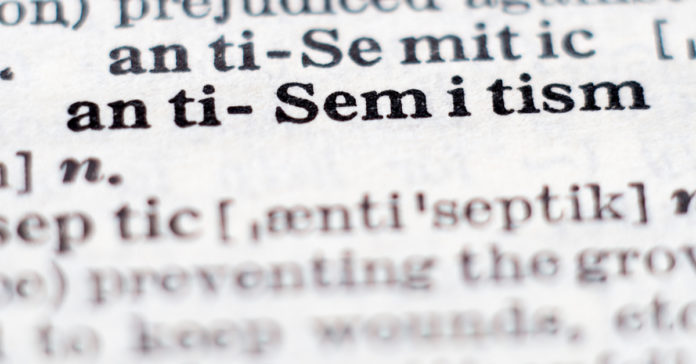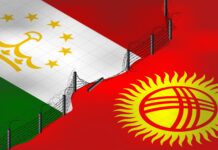One hundred and twenty eight scholars with a speciality in antisemitism have urged the United Nations not to adopt a definition of antisemitism that is being heavily promoted by the pro-Israel lobby.
In a statement published on Thursday, the scholars, who include leading Jewish academics at Israeli, European, UK and U.S. universities, said the definition has been “hijacked” to protect the Israeli government from international criticism.
They said the controversial International Holocaust Remembrance Alliance (IHRA) definition, which regards harsh criticism of Israel as antisemitic, has had a “divisive and polarising” effect.
Here is the letter in full as well as a link to the list of signatories at the bottom:
As scholars specialising in Antisemitism, Holocaust Studies, Modern Jewish History and related fields, we witness with growing concern politically-motivated efforts to instrumentalise the fight against antisemitism at and against the United Nations.
Israeli UN Ambassador Gilad Erdan has spearheaded these efforts. In his persistent attempts to undercut the Palestinians and to shield the Israeli government from international criticism, Mr Erdan has gone so far as to denounce the UN agency for Palestinian refugees (UNRWA) and the International Criminal Court (ICC) as “antisemitic.”
Beyond such defamation, Mr Erdan now seeks to fundamentally change the rules of the game by pressing the UN to adopt the “Working Definition of Antisemitism” of the International Holocaust Remembrance Alliance (IHRA WDA).
Subscribe to our newsletter and stay updated on the latest news and updates from around the Muslim world!
We find this definition deeply problematic. Vague and incoherent, the IHRA WDA does not satisfy the basic requirements of a good definition. Rather than ensuring greater clarity, the IHRA WDA has been generating confusion about what constitutes antisemitism.
As a result, the IHRA WDA has become highly controversial and contested, including among Jews. Its weaknesses prompted 350 leading scholars in Antisemitism, Holocaust Studies and related fields to endorse another more robust definition, the Jerusalem Declaration on Antisemitism.
The divisive and polarizing effect of the IHRA WDA flows from eleven “contemporary examples of antisemitism” attached to it, seven of which relate to Israel. Ample evidence shows that these examples are being weaponised to discredit and silence legitimate criticism of Israel’s policies as antisemitism. Among those denouncing such misuse is Kenneth Stern, the lead author of the IHRA WDA. More recently, Antony Lerman, former head of the World Jewish Congress’s Institute of Jewish Affairs, has sharply criticised the IHRA WDA for several flaws, including its focus on the so-called “new antisemitism” linked to Israel, at the expense of attention to virulent forms of antisemitism now on the rise.
One of the examples of the IHRA WDA says: “Applying double standards by requiring of [Israel] a behaviour not expected or demanded of any other democratic nation.” This example is particularly prone to political abuse at the UN, as it can easily be invoked to label any UN resolution that criticises Israel as antisemitic.
Let us be clear: we wholeheartedly welcome the commitment of the UN to fight antisemitism and commend the UN for its vital efforts in this regard. What we object to and strongly warn against is that the UN would jeopardize this essential fight and harm its universal mission to promote human rights by endorsing a politicised definition that is instrumentalised to deter free speech and to shield the Israeli government from accountability for its actions.
We know that the IHRA WDA has been adopted by multiple governments, mainly in Europe and the U.S. That in itself is problematic. However, if the UN were to endorse the IHRA WDA, the harm would be exponentially greater.
The Israeli government would be emboldened and enabled to escalate its campaign against UN bodies and experts, by weaponising and leveraging the IHRA WDA as a UN standard “establishing” that UNRWA, the ICC, the Human Rights Council and bodies like the Commission of Inquiry are antisemitic. By extension, human rights defenders and organisations challenging Israel’s violations would be fully exposed to smear campaigns based on bad-faith allegations of antisemitism, harming their freedom of expression and other fundamental rights protected and promoted by the UN.
The UN’s mission and mandate rely upon serious debate about human rights concerns. Adoption of the IHRA WDA would transform any factual discussion about Israeli violations and accountability into a fraught debate about alleged antisemitism. This could also weaken the UN’s ability to act as a neutral mediator in Israel and Palestine.
The weaknesses and instrumentalisation of the IHRA WDA have direct implications for the UN’s ability to fight antisemitism and all other forms of racism on universal grounds. UN High Representative Miguel Moratinos has been tasked by the UN to develop an “enhanced system-wide response [to antisemitism] based on a human rights approach.” Apart from contradicting a human rights approach, the IHRA WDA would inevitably politicise that response and thus compromise the UN’s ability to effectively fight antisemitism.
Instead of formally identifying itself with a vague and divisive definition that has been hijacked to shield the Israeli government, the UN should enhance its fight against antisemitism by relying on its universal human rights instruments, in accordance with its Charter. When seeking guidance, it should be free to consult a variety of resources, including the Jerusalem Declaration on Antisemitism.
We welcome the recent report by Prof. E. Tendayi Achiume, the UN Special Rapporteur on contemporary forms of racism, in which she “cautions against reliance on the IHRA WDA as a guiding instrument for and at the UN and its constituent entities” and calls on “UN member states and UN officials [to] firmly reject and act responsibly to end the political instrumentalisation of the fight against antisemitism.”
We urge UN member states and UN officials to act upon Special Rapporteur Achiume’s warning and call and stand ready to support the UN in its steps forward.
For a full list of signatories see here.
























